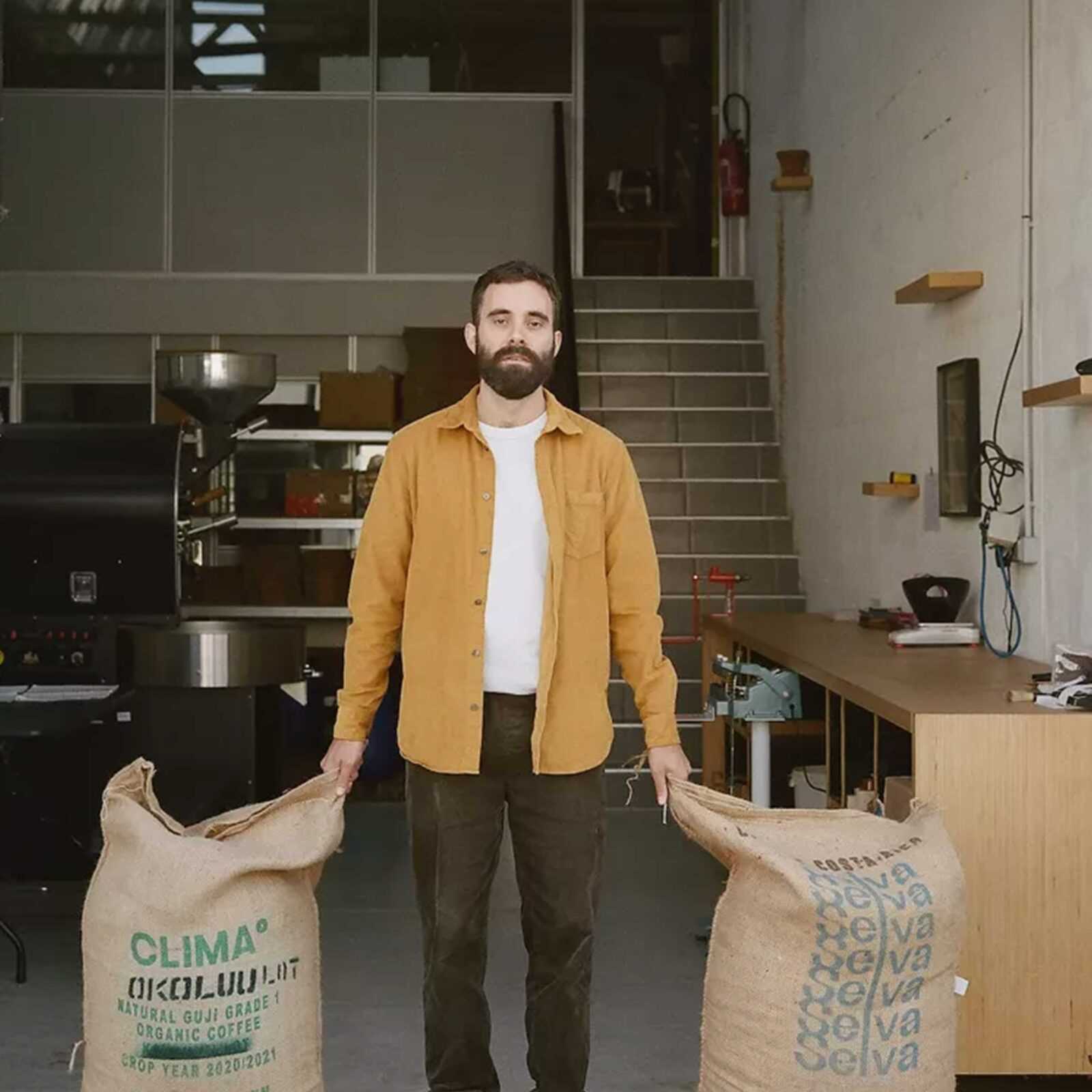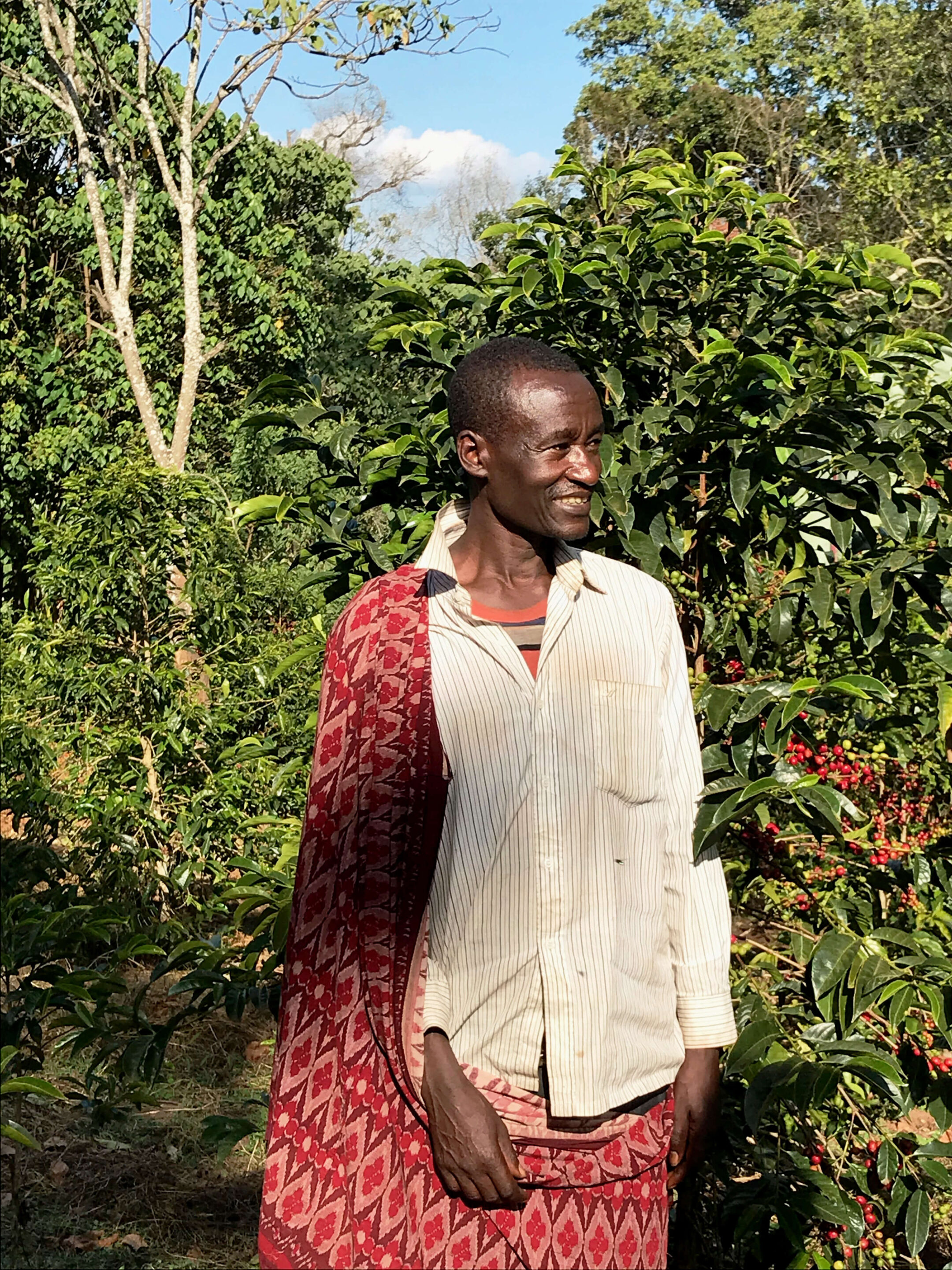⚽️ Breakout Argentinean roaster Puerto Blest first to represent its country in a Coffeevine box
Meet the finest roaster from Buenos Aires who is making its exclusive Coffeevine debut as the first Argentinean roaster this July
Over the past nearly ten years of running The Coffeevine, we have worked with a great deal of large and small roasters from around the world. Many have been regular guests in our boxes while others have only ever been featured once before. With such a fast-growing coffee roasting community in Europe alone, it’s hard to offer everyone a place and yet, it’s also incredibly rewarding to reconnect with former roasters years later and give them a new opportunity to share one of their finest coffees.
Placid from Lyon is a pioneering micro-roaster who we last featured in 2017; the only time. Back then, Julien Da Silva and his former co-founder Aurelien Ha had burst onto the scene with their curious coffee tubes, a very unusual and, in hindsight, impractical but none the less eye-catching way to package their coffees.
Using a mix of neon colours and stylised views of coffee farms for their labels, Placid wanted to give its customers a visual cue of what its name stands for. Placid is the French word for calm as well as landscape.
Fast forward to Novemer 2022 and much has indeed changed at Placid. From the team to its packaging, Placid has been working hard to focus on its sourcing practices, reducing complexity and it is still vehemently against offering blends. I recently caught up with Julien for a full-length interview to learn more.

THE COFFEEVINE: “Hi Julien. It’s been five years since we last worked together. It feels like a lifetime ago. I remember that back then, you were still using those funky tubes…”
Julien Da Silva (JdS): “Exactly. They were both impractical and expensive. They took ages to fill. Nowawdays, we’re using more conventional bags that still carry our key branding aspects but are easier to work with.”
TC: “Yes, I do miss those visuals of the countrysides though. I see you still have them on your website, however.”
JdS: “Yes. This was a very important aspect of our story in the beginning. We wanted to offer our customers transparency. The main reason was that specialty coffee took off pretty late in France. Many people didn’t know that coffee comes from a cherry. It was our goal to teach people something, that coffee indeed comes from a fruit that grows on a tree. These days, specialty coffee is actually pretty well-established and around us, a lot of people know us. I think we now have different types of conversations than before.”
TC: “How would you describe the local specialty coffee scene in Lyon today? Apart from you guys, there is also Cafe Mokha who we have worked with before.”
JdS: “Absolutely. There are quite a lot of people doing specialty coffee actually. I think there are around 12 roasters now and many of them are still quite new. As it so happens, I consult many of them because it does actually take quite a long time to learn how to roast properly and consistently. When I started roasting, I didn’t know much. It took me three to four years to really know what I was doing and of course, I’m still learning a lot and improving a lot.
This year alone, for example, I made some big changes. I used to roast on a Giesen and now I have a Diedrich, which has given me much better results. I’m able to develop my coffees much better. When I had a chance to try working with this roaster, I fell in love with it but it took me a good year and a half to learn everything about it. Roasting is really quite a difficult job.”
TC: “As a roaster, you also want to focus as much as you can on sourcing the best coffees you can get. In our previous chat, you mentioned that you liked sourcing from friends. Tell me a bit more about these relationships and how you go about finding new partnerships?”
JdS: “This developed very naturally. I used to mostly work with the big boys like Nordic Approach and Falcon etc. My job enabled me to visit farmers in different countries and to build relationships with people there. For example, we have an almost direct trade relationship with the Montero family in Costa Rica. They produce really great coffees!
One of my friends, Antoine Netien, co-founder of Cafés Coutume, one of the first specialty coffee roasters in France, recently started a new importing business called Clima. We work with him to source our Ethiopian coffees, including the Koromii that you will have in the Coffeevine box. We regularly speak on the phone about his exciting projects in Ethiopia or Peru and I am able to get all of the information from him that I need to get a full picture of the coffees’ origins.
What I found, over the years, is that many of the larger importers are not as good on transparency as they claim. Sometimes, it’s impossible to get good photos or even to verify details of the farm. If I end up with wrong information, I am really disappointed.
For me, it’s really important to get in touch with the farmers once I’ve decided to buy a certain coffee and these days, luckily, it’s quite easy to do that via Instagram or Facebook. ”
TC: “So, you prefer to work with smaller, more boutique importers who can maybe offer you more personal relationships than some of the big importers who deal with hundreds of farmers in many countries.”
JdS: “For sure. I also work with a company called Hope that sources a lot of coffees from Guatemala. They don’t have a ton of coffees but they know every producer and can give you hours worth of stories about each and every one. That is the way I like to work, personally. For now, I think I have enough suppliers but if I meet others in the future who are likeminded, I am open to new relationships.
“I would say that my ideal customer is someone who is already passionate about coffee.”
We do actually have one coffee from Nordic Approach right now, a Colombian coffee, which I bought because a good friend of mine works for Nordic Approach and he passed by Lyon a little while back and we did a cupping together.”
TC: “Are you still decidedly against offering blends or have you changed your mind somewhat?”
JdS: “No. I am still not blending any of my coffees. I feel like if I blend my coffees, I have nothing to talk about. And truth be told, I’m also not very good at making blends in the first place. It’s definitely an acquired skill. Some people are extremely good though.
I am also a judge in the French roasting championships and there is one component in the competition where you have to make a blend so I do appreciate people who can do it and do it well but it’s not for me.”

TC: “I mean, it is also a choice, right? As a roaster, you do want to bring out the very best of each coffee and showcase the different origins that you work with. This certainly becomes more challenging if you are making blends, which are mostly about price or consistency rather than the farmers.”
JdS: “I couldn’t agree more.”
TC: “Now, what is your ideal customer, both professional and home barista? Do you have a profile of each one or are you happy to work with anyone who comes along and wants your coffees?”
JdS: “One thing I noticed was that most of the people who order from our website are already coffee geeks in some way. They already know specialty coffee and know how to brew their coffees. On our website, we don’t offer any kinds of brew guides or other information to educate people on this. If someone who doesn’t know anything about coffee comes to my website, I don’t think they would buy anything. We only have whole bean coffee and we don’t grind for people.
So, I would say that my ideal customer is someone who is already passionate about coffee. To be honest, we don’t sell that much coffee through our website. Most of our sales are B2B.”
TC: “And who would you say is your ideal professional customer then?”
JdS: “I think it can be twofold. On the one hand, it could be the professional who is already really well-trained and who wants to open a café or restaurant. Someone who wants really high quality stuff and appreciates what we do.
On the other hand, it could also be someone who doesn’t know anything about coffee at all, who comes to our roastery, tries our coffees and falls in love with them on the spot. If this person is in the Lyon area and wants to work with us, I always make sure I provide sufficient training on the machines and so forth. I really try to offer a full-service experience.
However, if someone just comes to us and wants to work with Placid because they think it’s fancy but they don’t actually care about what we do, I prefer not to work with them.”
TC: “Do you have any particular ambitions for the upcoming years?”
JdS: “Apart from continuing to roast great coffees, nothing concrete. I just want to make sure that my company flourishes, especially after the last two years, which were very difficult. Right now, I am feeling very confident that we are going to be successful and grow but it took me six years or so to get here.
I’ve also turned away some big customers who wanted me to produce dark roasts for them and struggled through a period in which people were not ready to drink their coffees with a vibrant acidity. But now, we have some really amazing customers who know exactly what we’re trying to do.
I think that my biggest worry is about the specialty coffee industry in general. I wonder if, in a few years from now, we will still be able to get the same or better quality of coffee that we’re used to right now? Unfortunately, global warming is having a very severe impact on many producing countries and we don’t yet know what the long-term effects will be.”
TC: “That is a major concern without a doubt but we also know that climate change is potentially opening a door to some new origins.”
JdS: “That’s true but the question is whether they will be able to make up for the potential losses in current origins.”
TC: “Hopefully, we can find ways to mitigate this risk and make existing farms more climate change proof. In any case, what you’ve built is a great achievement and Lyon is richer by having Placid in its midst. I look forward to sharing your lovely natural-processed coffee from Koromii in this month’s box.”
This coffee is part of our upcoming November 2022 Coffeevine box that also features other delicious coffees from Coffee Plant and Mabó. To choose your ideal box and get in on the fun, just pop over to our shop now.
Meet the finest roaster from Buenos Aires who is making its exclusive Coffeevine debut as the first Argentinean roaster this July
Get excited to meet the roasters in our upcoming July 2025 edition featuring six talented names from around the world. Don’t miss out!
Take your coffee experience to the next level with this custom brew guide featuring recipes from our 7 roasters plus handy brew tips!
Discover how Colombia’s Diego Bermudez’ Native Coffee Company is redefining specialty coffee with origin-roasted, science-driven lots.
Subscribe to our newsletter for new box announcements, articles and special offers. No spam. Promise!
© 2025 All rights reserved The Coffeevine.
